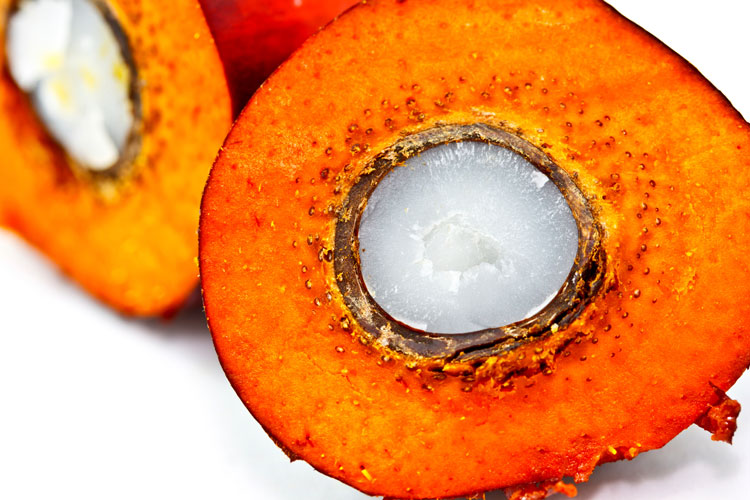Sustainable palm oil certification – the smart choice
- Like
- Digg
- Del
- Tumblr
- VKontakte
- Buffer
- Love This
- Odnoklassniki
- Meneame
- Blogger
- Amazon
- Yahoo Mail
- Gmail
- AOL
- Newsvine
- HackerNews
- Evernote
- MySpace
- Mail.ru
- Viadeo
- Line
- Comments
- Yummly
- SMS
- Viber
- Telegram
- Subscribe
- Skype
- Facebook Messenger
- Kakao
- LiveJournal
- Yammer
- Edgar
- Fintel
- Mix
- Instapaper
- Copy Link
Posted: 3 January 2019 | Andy Green | No comments yet
As the popularity of palm oil continues to grow, so does the controversy surrounding it – at time of writing, the furore over the banned Iceland supermarket/Greenpeace TV advertisement in the UK continues. Andy Green discusses how the supply chain can help to make the world’s most consumed vegetable oil – and a frequent ingredient in confectionery – viable and sustainable.


Palm oil is an emotive product. Earlier this year, Iceland, a major supermarket in the UK, announced that it would be placing a ban on all products containing palm oil and, online, consumers regularly use social media to call on companies to change their palm oil policies. The social damage that can befall a company that uses palm oil should not be underestimated; especially in the case of luxury products, such as confectionery items, which are easily boycotted by consumers and already have a high profile.
We have seen furore over palm oil with larger players, and Ferrero, for instance, has experienced many a storm about palm, specifically with its Nutella product. Interestingly, Ferrero – and Nutella in particular – has a very strong sustainable palm policy, and Nutella only uses segregated, sustainable palm oil. However, due to misinformation in the public domain, and a misunderstanding about how to make palm oil viable, those companies continually need to defend their position. Fortunately, Ferrero and many other confectionery companies are thinking about responsibility with respect to palm; but for those who have not been so careful, it could be very damaging indeed.
Palm plant is not the enemy
While there are certainly social, economic and environmental challenges associated with palm oil, the significant misconceptions regarding the product need to be tackled. To be clear, there is no such thing as a bad plant. Palm oil has extremely good properties: it is a high yield, low-tech crop with low waste, which is harvested by people rather than machines, providing jobs for millions of small farmers. When cultivated properly, palm is sustainable, super-efficient, and offers many social benefits in terms of employment and capital – helping people in developing countries to get out of poverty.
Its neutral smell, lack of taste, ideal texture and consistency make it an incredibly useful component for food products – not just confectionery, but ice cream, margarine and biscuits, too. Plus, as its yield per hectare is nearly five times greater than any other vegetable oil alternative, using palm oil helps to keep consumer prices affordable.
While there are certainly social, economic and environmental challenges associated with palm oil, the significant misconceptions regarding the product need to be tackled.
The issues associated with palm oil are actually a consequence of its success, as High Conservation Value (HCV) rainforests and carbon-rich peatlands are being converted for cultivation, leading to land grabbing and deforestation, which impacts wildlife habitats, including endangered orangutan populations. The burning of the forests to clear the land for oil palm also releases high levels of carbon dioxide and black carbon into the atmosphere, contributing to pollution and climate change. The rapid expansion of cultivation has also caused such problems as modern slavery, child labour and exploitation. In summary, the problem with palm oil is not the plant; it is Man.
Palm oil can be found in about half of all packaged products in the supermarket, and demand for it is increasing. If palm oil is banned, manufacturers will need to look for alternatives, and the problems would not only remain, they would increase. The next best option to palm oil is rapeseed oil, but this plant is much less efficient, and requires far more space to harvest. In terms of scale, the land space needed to harvest the world’s current palm oil requirement is roughly the size of Spain; yet the space needed for the same amount of rapeseed oil would be the size of Canada. It is simply not viable to sustain the global requirement without palm oil; but if palm oil is not dealt with properly, the global impact will be enormous and could drive the orangutan into extinction.
Solving the problem
So how do we meet the increasing demand for palm oil while ensuring that the environment, wildlife and local people are protected? The Roundtable on Sustainable Palm Oil (RSPO) was established in 2003 by a number of parties, including the World Wildlife Fund for Nature, and has assumed the task of solving this issue. It is the firm belief of this organisation that the answer lies in certification.
Part campaigning organisation, part business-friendly agent for sustainable growth in the palm oil sector, the RSPO seeks to protect the environment of the orangutans and other species at risk of extinction. It is not pushing for the removal of palm oil, but for properly cultivated palm oil, and aims to mitigate negative consequences without unduly affecting supply. Positively, the impact of the RSPO is on a rising trend: at the end of 2017, 19 per cent of world yields were certified as sustainable, and an increase on that figure is expected in this year’s results.
The RSPO’s definition of sustainable palm oil significantly limits HCV forest clearance and prohibits any burning – of waste products, for example – in its cultivation. The welfare of local communities who depend on the forest must be safeguarded, and employees in the trade must be offered fair working conditions. Organisations can ensure that they are supporting this by certifying all products containing palm oil to the RSPO standard.


Chocolate made with sustainably sourced palm oil
For the palm oil to be certified, each stage of the supply chain must be certified – so the plantation, mill, the crude oil refinery, the oil itself, the manufacturers, and anyone who takes legal ownership of the palm oil and physically handles it, through to the end-user, all need to be individually audited by an independent RSPO-accredited certification body. BM TRADA was the first certification body to be approved by the RSPO in 2006, and it has just been accredited for supply chain certification for a further five years. There are around 20 certification bodies worldwide that are RSPO accredited, with some focusing on plantations, and others certifying the supply chain.
The process sounds complex, but it is actually very simple. As each stage is certified, there is an obvious paper trail, and the certification can easily be traced back through suppliers. The good news for the supply chain is that the certification process is also relatively straightforward. The certification only focuses on the palm and derivatives of the palm in the product, which tends to be a very narrow part of the business stream. This means that, usually, very few changes are required.
After being vetted and accepted as members of the RSPO, and implementing what is known as an ‘internal control system’, businesses wanting to be certified are ready to be audited. Auditors confirm production processes are adequate, approve documentary records, and check the accuracy of sales and marketing literature. This process usually takes about one day. Provided there are no non-compliances, certification is issued shortly after. Each certificate lasts five years, with yearly ‘surveillance’ audits along the way.
Things to consider
There are a few things worth keeping in mind in terms of the RSPO. Firstly, retailers need to be more explicit about what they are looking for when it comes to sustainable palm and, secondly, there should be more emphasis on suppliers understanding what retailers need. We have witnessed confusion around this, as some retailers ask for suppliers to be certified without realising that, in order to receive RSPO certified products, all the sites and the palm oil content of the product need to be certified as well.
It is also important to stress the need for identifying the sources of all ingredients in the product development process. We have experienced complications with clients in the past who have developed a product, only to discover at the final stages that it cannot be sustainably sourced, and so was not suitable to sell to retailers. A great deal of time and money can be wasted on creating a product, which then doesn’t make it to the shelf.
Retailers need to be more explicit about what they are looking for when it comes to sustainable palm and there should be more emphasis on suppliers understanding what retailers need
This is of particular significance for seasonal products, which, of course, are time sensitive. We had a case several years ago with this exact issue: a client had developed a Christmas cake that featured a Father Christmas figure on top of the cake. While most of the ingredients were standard to the client, the colouring in the all-important red coat of Father Christmas was palm-based. This created a major issue for our client, as it was an own brand cake, which was required for the seasonal range, and also, time was against them. Fortunately, as we work very closely with our clients, we were able to help them find a solution and work around the issue – so the Christmas cake made it to the store in time for the season. However, if any potential new sources of palm are recognised at the start of the development process, it is much easier to rectify, and can save a significant amount of time and cost.
The cost of certification Vs the cost of non-certification
Of course, there are cost implications involved in the certification process, and while the RSPO standard is currently a voluntary one, for businesses wanting to offer a sustainable product, acting against modern slavery and protecting biodiversity, this very simple certification process is crucial.
Many businesses will be signed up to Zero Net Deforestation Commitments, pledging to eliminate deforestation from their supply chains – with an emphasis on palm, soy and cattle – by 2020. As we near the end of 2018, this deadline is fast approaching, and is likely to be more of a focus for these organisations in particular. By certifying to RSPO, the palm aspect of these commitments is taken care of, as it provides proof to both stakeholders and customers.
With consumers expecting organisations to take their environmental responsibilities seriously, and with such high stakes in terms of wildlife and communities, can any business afford not to?
About the author
Andy Green is BM TRADA’s Business Development Director, with over 10 years’ experience in the certification sector. Andy has a lifelong interest in sustainability, speaks at industry events and has served on RSPO standing committees for the past eight years.
Issue
Related topics
Environment, Fats & oils, Plant based, Regulation & Legislation, Supply chain, Sustainability
Related organisations
Ferrero, Iceland, Roundtable on Sustainable Palm Oil (RSPO), RSPO, World Wildlife Fund for Nature









